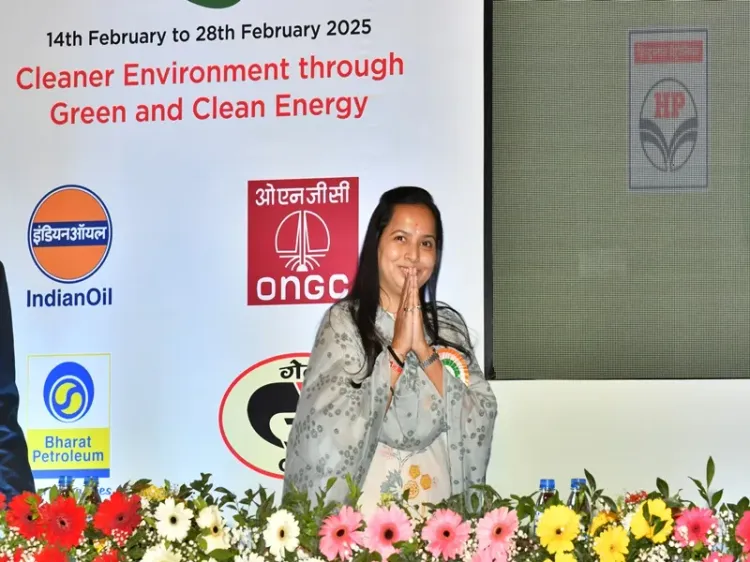Maharashtra Minister Advocates Fuel Conservation for Sustainable Energy and Environmental Goals

Synopsis
Key Takeaways
- Increased solar energy use is key to sustainable development.
- Daily fuel conservation practices can enhance energy security.
- The Central government targets 20% ethanol in fuel by 2025.
- Saksham 2024-25 promotes awareness through various initiatives.
- Community involvement is essential for effective conservation efforts.
Mumbai, Feb 14 (NationPress) Maharashtra Minister for Women and Child Development Aditi Tatkare stated on Friday that an increased reliance on solar energy and everyday fuel conservation practices can pave the way for energy security, sustainable development, and environmental protection in the future.
She made these remarks at the launch event for a campaign organized by the Ministry of Petroleum and Natural Gas along with the state government aimed at raising awareness about the promotion of green energy and environmental conservation.
Tatkare highlighted that small actions, such as using gas and electricity wisely at home, installing solar panels on buildings, and turning off vehicle engines at traffic signals, can significantly contribute to fuel conservation and sustainable development.
This initiative includes Saksham 2024-25 (Sanrakshan Kshamata Mahotsav), which is being conducted from February 14 to February 28.
Tatkare pointed out that the Central government aims to achieve a 20 per cent ethanol blend in fuel by 2025, which will aid in decreasing reliance on fossil fuels. She emphasized that ensuring renewable energy security and establishing a pollution-free environment should be primary goals.
A street play was performed to educate children on fuel conservation, and a collective pledge to save fuel was taken.
Maharashtra Chief Minister Devendra Fadnavis extended his best wishes for the festival.
State coordinator Umesh Kulkarni stated that from February 14 to February 28, oil marketing companies will carry out statewide awareness campaigns focusing on conservation, sustainable development, and environmental protection.
The campaign will target students, youth, drivers, cleaners, employees, farmers, residential societies, gram panchayats, and NGOs to emphasize the significance and advantages of fuel conservation.
Various initiatives to promote fuel-efficient technologies and practices will be introduced, including cyclothons, walkathons, painting competitions, and fuel-efficient driving contests to disseminate the message of fuel conservation.










